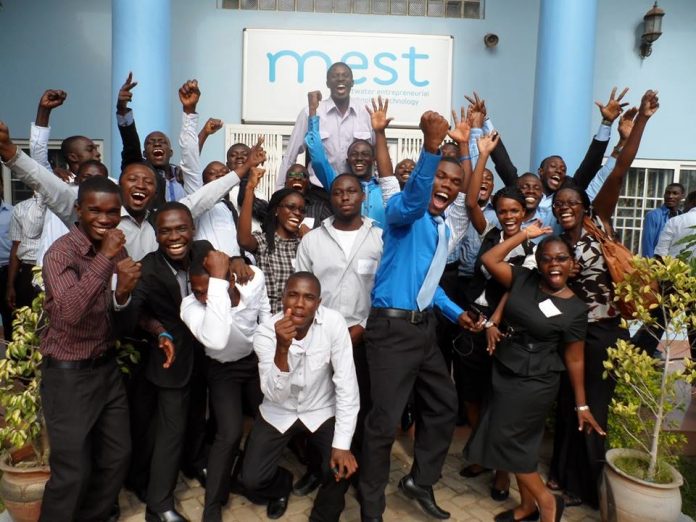In 2008, Norwegian entrepreneur Jorn Lyseggen opened Meltwater Entrepreneurial School of Technology (MEST) in Accra, Ghana, to train young Africans to become globally competitive software entrepreneurs. In addition to training, MEST’s two-year program offers funding and incubation. MEST itself is a project of the Meltwater Foundation, the nonprofit arm of Lyseggen’s Meltwater Group, a software as a service (SaaS) company with more than 50 offices worldwide. Lyseggen recently spoke to AfricaStrictlyBusiness.com about his vision to help develop those who could become Africa’s equivalent to Bill Gates and Mark Zuckerberg.
AfSB: Why did you create MEST?
Lyseggen: I always knew that I wanted to create something in the not-for-profit arena. My idea was to establish a school to help train software entrepreneurs. I also believe talent is equally distributed and that opportunities are not, and that all you need is a laptop, the right guidance, and an Internet connection, and great software can be built anywhere. For this reason I saw Africa as a continent where people would really benefit from the program. And on the back of this, we went off on a fact-finding mission across Africa. In the end we chose Ghana for many reasons, including the strong education system. It has good infrastructure, it is politically stable, it has direct flights to U.S. and European hubs, and most of all, the spirit of the Ghanaian people.
AfSB: What are the goals of MEST?
Lyseggen: The overall goal is to help create role models that, in turn, inspire the upcoming generation to become successful software entrepreneurs, creating wealth and jobs locally in Africa.
AfSB: How does the incubator work?
Lyseggen: The MEST incubator currently houses 13 companies. It is a place for the graduates of MEST who receive seed funding to go to build their businesses. In fact, it is connected to the school via a bridge built by MEST alumni! At the end of the two-year training program, the students pitch a business idea. They have been working in teams on these final ideas for the final six months at the school. If we like the idea we will invest – anything up to $200,000 – and they will found the company and move into the incubator. In addition to office space, electricity and Internet, the companies gain access to a team of international fellows, advisors and mentors both on the ground in Ghana and based internationally, helping to bridge the gap to both San Francisco and London.
AfSB: Who are some of the successful African tech entrepreneurs that have come through MEST?
Lyseggen: Since 2008, 139 students have graduated from the school, 13 companies have been created and over 40 local jobs have been created by these start-ups. Over the past year, the MEST companies have gained global recognition and exposure. Saya Mobile was placed as one of seven finalists at TechCrunch Disrupt Battlefield in San Francisco in September 2012; mPawa pitched at DEMO Africa in October 2012 and is now one of five Lions@frica companies to pitch at DEMO in San Francisco in October this year. Additionally, ClaimSync just completed the three-month Health XL accelerator in Dublin (Ireland), and Dropifi just completed the 500 Startups accelerator program in Silicon Valley. We are also very excited about Leti Arts, which is launching African Super Heroes via comics and games at the end of this month. Watch this space for sure.
AfSB: What are your goals for MEST this year?
Lyseggen: We will continue to create entrepreneurs. A new batch of 26 students entered the MEST doors last week, and we will have the class of 2014 graduating next June. We keep the classes small to maintain quality. My hope is that our graduates and entrepreneurs are considered some of the best coming out of the continent.
AfSB: What are your long-term goals?
Lyseggen: We want to develop successful entrepreneurs. But more than that, we want to create role models. Our long-term vision is to create jobs and wealth locally in Africa. The way we want to do that is by creating role models that hopefully inspire the upcoming generation across the continent. We don’t need a huge success like a Facebook. But a $10 million to $20 million exit would be huge. We are hoping that if this happens, they will be on the front page of newspapers, magazines, and on TV, and they will be rockstars across the African continent. We hope this can contribute to inspire the upcoming generation across Africa and generate jobs and wealth locally. I really believe if someone has a computer they can do amazing things.
AfSB: How do you reach out to African tech entrepreneurs?
Lyseggen: MEST was founded in 2008 and for the past five years we have been establishing relationships with the top universities and student bodies in Ghana. We host on-campus information sessions at the universities, as well as tech events such as MEST48, and most recently The DevCongress, at MEST.
AfSB: What are some of the obstacles African tech entrepreneurs face?
Lyseggen: All entrepreneurs face challenges. Being an entrepreneur is not an easy task. There are roadblocks every step of the way, even for those in Silicon Valley. Our entrepreneurs face all these problems, plus the fact they are located in Africa. There are the obvious issues with access to a wealth of potential employees, capital and infrastructure. That said, I do get better cell signal and 3G connection in Accra than in downtown Palo Alto (California)!
Another obstacle is the potential lack of knowledge, distance from, and interaction with the markets they are targeting. However, one of our companies, RetailTower, is helping over 12,000 merchants selling their products online without even having bought anything online themselves. At MEST we have an international team, and we are seeking out mentors to help bridge these international gaps where needed.













